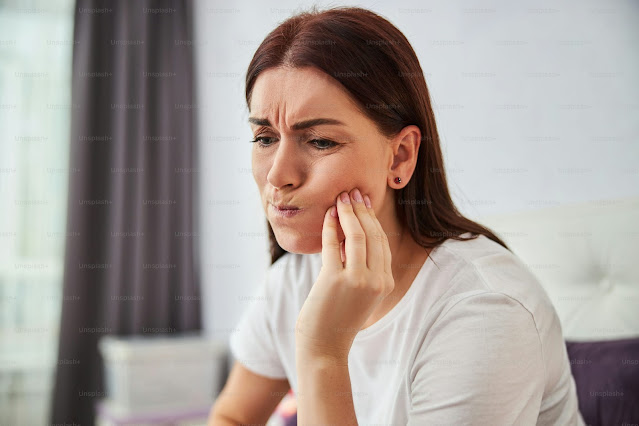How To Relieve Tooth Pain Fast?
The Pain of Tooth: An Extensive Manual for Rapid Alleviation

Tooth
pain is one of the worst experiences, making it impossible to carry on
with everyday activities and difficult concentration on anything else.
The dull ache or sharp shooting pain calls for urgent know-how on how to
relieve tooth pain fast because it is mostly a problem affecting
everyone. This extensive manual will look into different ways to
eliminate tooth pain, from quick fixes at home to therapies done by
professionals. For every individual suffering from tooth ache this
5,000-word blog would have everything they require to solve the problem
plus useful tips on things like the leading causes and ways of
preventing them.
Contents Table
1. Understanding Teeth Pains
A. Actual Causes of Teeth Pains?
B. Teeth Pain Types
2. Techniques for Instant Relief
A. Non-Prescription Pain Killers
B.Cold Gel Packs
C.Salt Water Rinses
D.Clove Oil Extract
E.Hydrogen Peroxide Wash
F.Peppermint Tea Bags
G.Garlic Cloves
H.Lift The Head Up
3. Home Remedies for Tooth Pain
A. Aloe Vera
B. Wheatgrass Juice
C. Vanilla Extract
D. Apple Cider Vinegar
E. Mixing Baking Soda to Paste form
F. Mixing Turmeric into Paste
4. Natural Remedies for Tooth Pain
A. Essential Oils
B. Herbal Teas
C. Acupressure
D.Ginger Cayenne Paste
5.Professional Remedies
A. When Should You Visit A Dentist
B. General Dental Procedures
C. Medicines By Prescription
D. Root Canal Care Regimen
E.Dental Implant Surgery
F.Options That Can Be Operated
6. Preventing tooth pain
A. Good Oral Hygiene Practices
B.Diet and Nutrition
C. Regular dental check-ups
D.Avoiding Common Triggers
7.Special Considerations
A.Tooth Pain During Pregnancy
B.Tooth Pain in Children
C.Tooth Pain in Seniors
8. Conclusion: Managing and Preventing Tooth Pain
1. Understanding tooth pain
A.What causes tooth pain?
Toothache can be caused by several factors and it is important to determine the cause of the ache so as to prescribe the right cure. The most common causes include:The most common causes include:
Tooth decay: When the decay reaches the enamel, the cavities that are formed can be very sensitive and may cause an immense amount of pain if inner pulp is exposed.
Gum Disease: Periodontal diseases cause inflammation of the gingiva and initial forms of periodontitis are characterized by tooth sensitivity, pain, swelling and redness and bleeding of the gums.
Tooth Abscess: When a severe infection occurs at the pulp of the tooth it results in sharp shooting pain and the individual should seek a dentist.
B.Cracked or Damaged Tooth:

Cracks and chips on a tooth entails that the nerves of the tooth are exposed hence causing immense pain.
Tooth Sensitivity: Fluorescence can be caused by exposure to extreme temperatures and certain kinds of foods in teeth that are sensible to pain.
Teeth Grinding (Bruxism): Crunching can make teeth sensitive and weak and sometime causes pains in the jaw and other articulating parts of the tooth.
Impacted Wisdom Teeth: There is information that wrongly positioned wisdom teeth cause pressure on other teeth and cause pain and discomfort.
In chasing the source of your tooth pain, it would be easier for you to receive the correct treatment for it.
C.Types of tooth pain
There are various signs and symptoms with toothache indicating the type of pain one is having will help in finding the cause of the pain.
Dull, Aching Pain: As with other types, it could be sharp, throb, or be a dull ache that may or may not be present all the time and may be related to cavities or gum disease.
Sharp, shooting pain: usually associated with sensitivity in the teeth or a chipped tooth, this kind of pain is one that begins with particular actions such as chewing food or with cold draft.
Throbbing Pain: The common characteristic of throbbing pain is that is becomes severe and is evident in condition such as infection or abscess.
Pressure Pain: Pressure pain can be caused by grinding or an impacted tooth this type of pain will worsen when the individual is biting or chewing food.
Radiating Pain: Any pain that then extends to the jaw, the ear, the neck or any other part of the body should be considered as a sign of an underlying condition such as an abscess or nerve damage.

















No comments